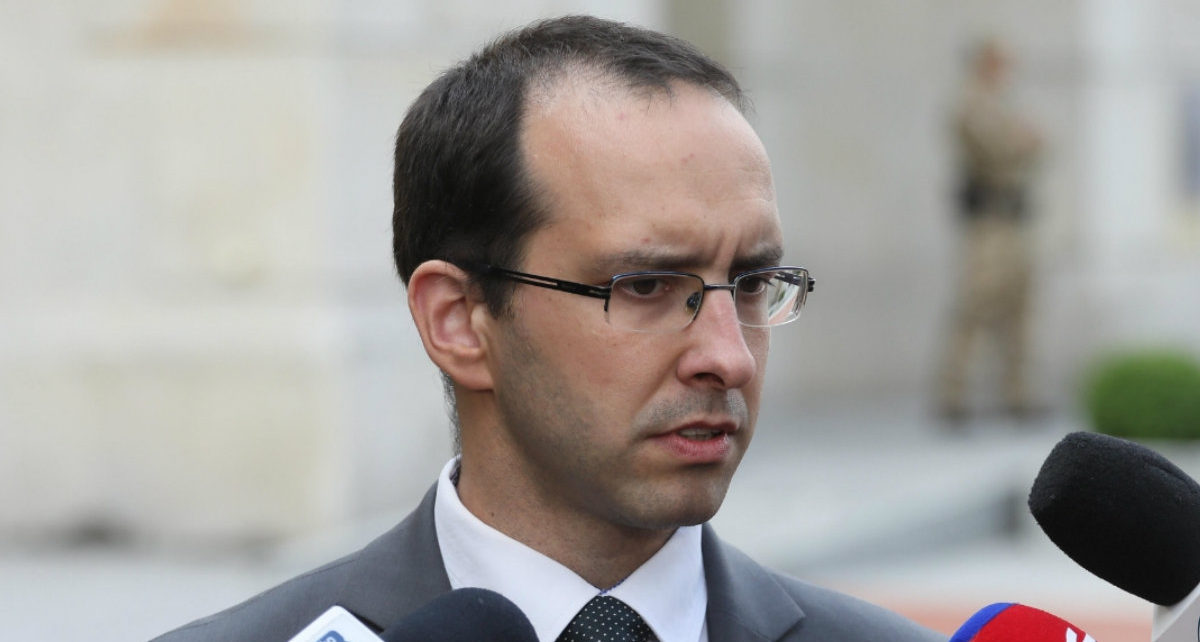By Stanisław Żaryn, for StopFake
In the COVID-19 pandemic Vladimir Putin sees a chance to pull Russia out of its international isolation. Therefore, the coronavirus crisis has become a tool widely used in the Kremlin’s diplomatic offensive.
Russia’s foreign minister has recently rejected Western claims that behind the Kremlin’s coronavirus aid to Italy and elsewhere is political point-scoring. But when Sergey Lavrov is slamming the West for getting the Russian motives wrong, one may assume there is something wrong with these motives. Indeed, sending medical supplies “From Russia with Love” has all the hallmarks of an influence operation. Russia has been dispatching coronavirus aid to the West in the spotlight and with a massive propaganda and disinformation coverage. It is also portraying itself as a leader of international efforts to defeat the disease. All this serves the Moscow’s diplomatic gambit – to ensure its impunity for the war it has been waging against Ukraine.
Italy was the first recipient of the Russian military cargo planes with medical equipment and staff. Was it because the Kremlin had felt the need to help the then epicenter of the pandemic? That is rather unlikely. Most probably, behind Russia’s decision to send aid to Italy was an expectation that in return the pandemic-stricken country would support the Kremlin on international level. Russia pressures the West to lift the sanctions imposed on Moscow in response to its attack on Ukraine in 2014, the seizure of its territories – Crimea and Donbas – and the crippling destabilization of the country. Meanwhile, Rome has been advocating for such lifting and for NATO to adopt a softer stance on Russia. Note that the Russian coronavirus aid is administered in such a way so as to break the West’s unity. It is being sent only to selected EU countries. Italy did get the chance, but why have there been no support offered to France, Spain or the UK – all three affected by the pandemic almost as badly as their South European partner? No such aid was provided by the EU institutions either. Hence, one can assume that Russia’s actions were designed to further undermine the unity in Europe, which is the Kremlin’s unchanging tactics.
Russia has been waging diplomatic war against the West for a long time. Currently, the Kremlin is using many different measures, including propaganda, manipulation and disinformation. On April 1st, a planeload of medical equipment sent by Moscow landed in New York. Russia had done everything to portray its mission to the US as humanitarian aid. In addition, Russian international media outlets reported on almost every minute of the flight – the take-off, overflight, landing and unloading. The myth of Russia’s altruism was eventually busted by the State Department. In a statement, the US authorities said the medical equipment and protective gear had been… purchased from Russia. With its propaganda Russia wanted to achieve a strategic goal – to show the futility of the sanctions imposed by Washington. After the aircraft with coronavirus supplies landed at JFK airport, Russian media reported that ventilators – a part of cargo – had been manufactured by a company blacklisted by the US in response to Russia’s aggression on Ukraine. When journalists asked Maria Zakharova, spokeswoman of the Russian Foreign Ministry, to comment on the matter, she stated that if the ventilators were unwanted by the US, Russia could take them back. A similar manipulation to the one used against the US, was used against Estonia. After a plane with millions of protective masks and other equipment landed in Tallinn on April 2, the Kremlin-controlled media labelled the event as Russia’s aid to its Baltic neighbor. Meanwhile, the equipment had been procured from China within the framework of a joint order from Estonia and Latvia and with the help of an Estonian online store. There were no links to Russia whatsoever during this transaction. As shown above, Russia uses manipulation and lies to feed its global health-keeping myth.
Russia also uses the coronavirus aid to build a political advantage. After Italy and the US, the Kremlin dispatched help to Serbia and Bosnia and Herzegovina. Here the choice was clear. Both countries are the last non-NATO states in the Balkans and the Kremlin would surely like them to stay that way. Both are perceived by Moscow as belonging to its sphere of influence. By sending medical equipment and doctors there Russia showed its readiness to increase or at least maintain its role in the region.
Amid the world’s struggle to contain the virus, the Russian diplomats have stepped up their efforts to persuade the international community the Kremlin is able to help others, but because of the sanctions its aid is not as productive as it might be. Moscow is spying the opportunities to internationalize the issue of sanctions. During a virtual meeting of the G20 leaders in March, V. Putin called for a “joint moratorium on restrictions on essential goods as well as on financial transactions for their purchase”. Later, in the U.N., Russia tried to talk the General Assembly into adopting a coronavirus-related resolution calling for the lifting of sanctions without the Security Council’s approval. In response, Ukrainian authorities wrote a letter to the U.N. Secretary General urging him to ensure the sanctions regime would not be waived. Eventually, the Kremlin’s efforts went in vain thanks to an opposition from a number of western countries. In another attempt to persuade the world the restrictions must disappear, Russia’s former Prime Minister Dmitry Medvedev, in his op-ed for TASS Russian News Agency, has called for new rules of international cooperation in view of the imminent post-pandemic economic crisis. From the Kremlin’s perspective the pandemic may even serve the absolution of its sins. Recently, the Russian sport minister urged the international community to “turn a new page” and forget his country’s doping scandal.
During the COVID-19 crisis Russia permanently hits those states which are “hardliners” on the issue of sanctions. Poland and the Baltic States are the first-choice targets. The goal is clear – to smear those who are not pleased with the Russian efforts. Undermining the credibility of Poland, Lithuania, Latvia and Estonia is a way to pursue anti-sanctions policy in the West. The attacks on Poland and other countries in the region are the other side of the same coin. Similarly, the Kremlin will depreciate opinions expressed by the capitals more skeptical about Russia’s new, better face in the post-pandemic world order. They will be accused of being driven by anti-Russian sentiment or obstinacy or even labelled as the proxies of the U.S.
Russia’s diplomatic game whose rule is to use the global struggle to contain the pandemic for the Kremlin’s own purposes has only begun. In the coming weeks one might expect more efforts from Russia to portray itself as a reliable partner and to escape its international ostracism. But Moscow’s utmost geopolitical goal is to get free from Western sanctions. The world, busy fighting the virus, must not forget all these restrictions are there for a reason. If Russia succeeds in having them lifted, it will go unpunished for the war it has been waging against Ukraine since 2014.
By Stanisław Żaryn, for StopFake
Stanisław Żaryn is spokesperson of Minister-Special Services Coordinator in Poland





